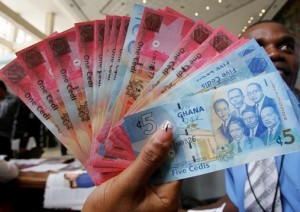Organised labour, government begin negotiations for 2016 minimum wage
 Mr Kofi Asamoah, the Secretary-General of the Trades Union Congress (TUC), has said Organised Labour was entering into negotiations, on Friday, toward setting the 2016 Daily Minimum Wage, with the core message – “Times are really hard for the working people.”
Mr Kofi Asamoah, the Secretary-General of the Trades Union Congress (TUC), has said Organised Labour was entering into negotiations, on Friday, toward setting the 2016 Daily Minimum Wage, with the core message – “Times are really hard for the working people.”
Organised Labour, he said, would, therefore, push for a deal from the managers of the economy that would alleviate the plight of the Ghanaian worker, although the economy could not support a living wage now.
Mr Asamoah, who was speaking in an interview with the Ghana News Agency, on Thursday, said the high inflation rate, the uncontrollable fall of the cedi, the series of increases in utility tariffs, and increases in the prices of petroleum products and transportation fares, had cumulatively chiseled out the safe value of incomes.
“We’re going through one of the worst times of economic downturns, and there’s limit to which one can accommodate these hardships,” he said. “The anticipation we had for progress of the economy at our last negotiations has not gone as expected. “Indeed, all the economic indicators have gone out of gear.”
The National Tripartite Committee (NTC), comprising representatives of Organised Labour, Government, and the Ghana Employers Association, is beginning its negotiations for the setting of next year’s Daily Minimum Wage so that the figures can be captured by the 2016 National Budget.
At the end of the negotiations, the Public Services Joint Standing Negotiating Committee (PSJSNC) comprising Government, represented by the Fair Wages and Salaries Commission (FWSC), Ministry of Employment and Labour Relations, Ministry of Finance and Organised Labour, Associations and Institutions, would also enter into negotiations to determine the 2016 pay adjustment levels for public sector employees on the basic single spine salary structure.
The NTC announced a Daily Minimum Wage of 16.17 per cent for 2015, while the PSJSNC offered an increment of 13 per cent, which included the consolidation of the 2014 Cost of Living Allowance of 10 per cent.
When these increments were announced on Tuesday, January 20, the cedi exchange rate to the dollar was about GH¢3.31. However, the current rate is about GH¢4.38.
The year-on year inflation for January 2015, according to the Ghana Statistical Service, (GSS) was 16.4 per cent. However, the year-on-year inflation for May 2015, was 16.9 per cent.
According to the GSS, food prices increased by 7.3 per cent, while housing and utilities surged to 25.4 per cent on the Consumer Price Index for the recent period under review.
A cross-section of workers that the GNA interviewed said, they expected Organised Labour to ask for a top up of the 2015 levels, to cushion workers.
However, when asked, Mr Asamoah said that option had not been ruled out, given the prevailing circumstances, but it was not the usual position of labour to ask for mid-year reviews.
Usually, he said, Labour would factor the issues to reflect in the following year’s levels.
Meanwhile, Mr Asamoah said, Labour would ensure that the Categories Two and Three Allowances of the Single Spine Pay Structure, which have been frozen since 2010, were paid this year, as was negotiated as part of the 2015 wage adjustment conditions.
The technical committee which worked on the allowances has submitted its report to the PSJNC and the Ministry of Finance.
The issue would be tabled, he said, at the impending meeting of the PSJNC.
The allowances include acting allowance, additional duty allowance, travelling expense allowance, uniform allowance, height allowance, transfer allowances and out of station allowance.
Source: GNA
